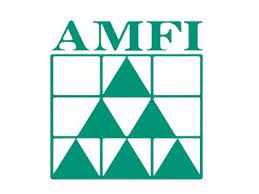Equity advisory services assist you in making informed investment decisions in the stock market, maximizing potential returns while managing risks. These services help you build and diversify your equity portfolio, ensuring that you take advantage of market opportunities while aligning your investments with your financial goals.
Types of Equity Advisory:
- Growth Investing: Focuses on investing in companies with high potential for growth, aiming to achieve long-term capital appreciation.
- Value Investing: Targets undervalued stocks that are trading below their intrinsic value, offering potential for steady returns over time.
- Income Investing: Concentrates on stocks that provide regular dividends, ensuring a steady income stream for investors.
- Small-Cap Investing: Involves investing in smaller, emerging companies with high growth potential, which may offer substantial returns with higher risk.
- Large-Cap Investing: Involves investing in well-established, large companies with stable earnings and lower risk compared to smaller companies.
Features of Equity Advisory:
- Personalized Investment Strategies: Equity advisory services tailor investment strategies based on your individual risk tolerance, financial goals, and market conditions.
- Diversification: Helps in creating a diversified portfolio across various sectors and industries, minimizing risks while maximizing returns.
- Expert Guidance: Provides expert insights and market analysis to guide your investment decisions, helping you navigate complex market dynamics.
- Regular Portfolio Reviews: Ongoing monitoring and adjustments to your portfolio ensure that your investments remain aligned with your financial goals and market changes.
- Risk Management: Identifies and manages risks within your equity portfolio, using strategies such as stop-loss orders and asset rebalancing to protect your investments.
Esdee Finmart offers personalized equity advisory services designed to help you make informed, confident investment decisions. With expert analysis and tailored strategies, we assist you in navigating the stock market to achieve your financial goals.
Debt investments involve lending your money to issuers like corporations or governments, who promise to repay the principal along with periodic interest. They are ideal for individuals seeking reliable returns and lower volatility compared to equity investments.
Types of Debt Investments
- Government Bonds: Issued by the government with minimal risk.
- Corporate Bonds: Issued by companies to fund operations or projects.
- Fixed Deposits (FDs):Bank or company deposits with fixed tenure and interest rates.
- Debentures : Long-term debt instruments issued by corporations.
- Money Market Instruments : Short-term debt securities like Treasury Bills and Commercial Papers.
Features of Debt Investments
- Capital Preservation : Focuses on maintaining the principal amount.
- Steady Income : Provides regular interest payouts for financial stability.
- Lower Volatility : Less affected by market fluctuations compared to equities.
- Diverse Options : Choose from a range of instruments based on risk and return preferences.
- Tax Benefits :Certain instruments like government bonds may offer tax exemptions.
Debt investments are a reliable choice for individuals aiming for financial stability and consistent income. Secure your future with investment options tailored to your needs.
Hybrid funds allocate assets across equities, debt, and sometimes other instruments like gold. This diversification ensures a balanced approach, offering the growth potential of equities with the stability of debt. They are ideal for investors seeking a mix of returns and risk mitigation.
Types of Hybrid Funds
- Equity-Oriented Hybrid Funds : Predominantly invest in equities with a smaller portion in debt.
- Debt-Oriented Hybrid Funds:Allocate more to debt instruments and less to equities.
- Balanced Advantage Funds : Dynamically adjust equity and debt exposure based on market conditions.
- Multi-Asset Allocation Funds : Invest in multiple asset classes like equity, debt, and gold.
- Arbitrage Funds : Focus on exploiting price differences in equity markets for low-risk returns.
Features of Hybrid Funds
- Diversification : Spreads investments across asset classes to reduce risk.
- Balanced Risk-Return : Combines growth potential with stability for optimal returns.
- Professional Management : Managed by expert fund managers for informed decisions.
- Flexibility : Wide range of options for different risk appetites and financial goals.
- Tax Efficiency : Equity-oriented hybrid funds enjoy favorable tax treatment.
Hybrid funds are an excellent choice for individuals seeking balanced returns with manageable risk. Their diversified nature makes them suitable for both novice and experienced investors.


